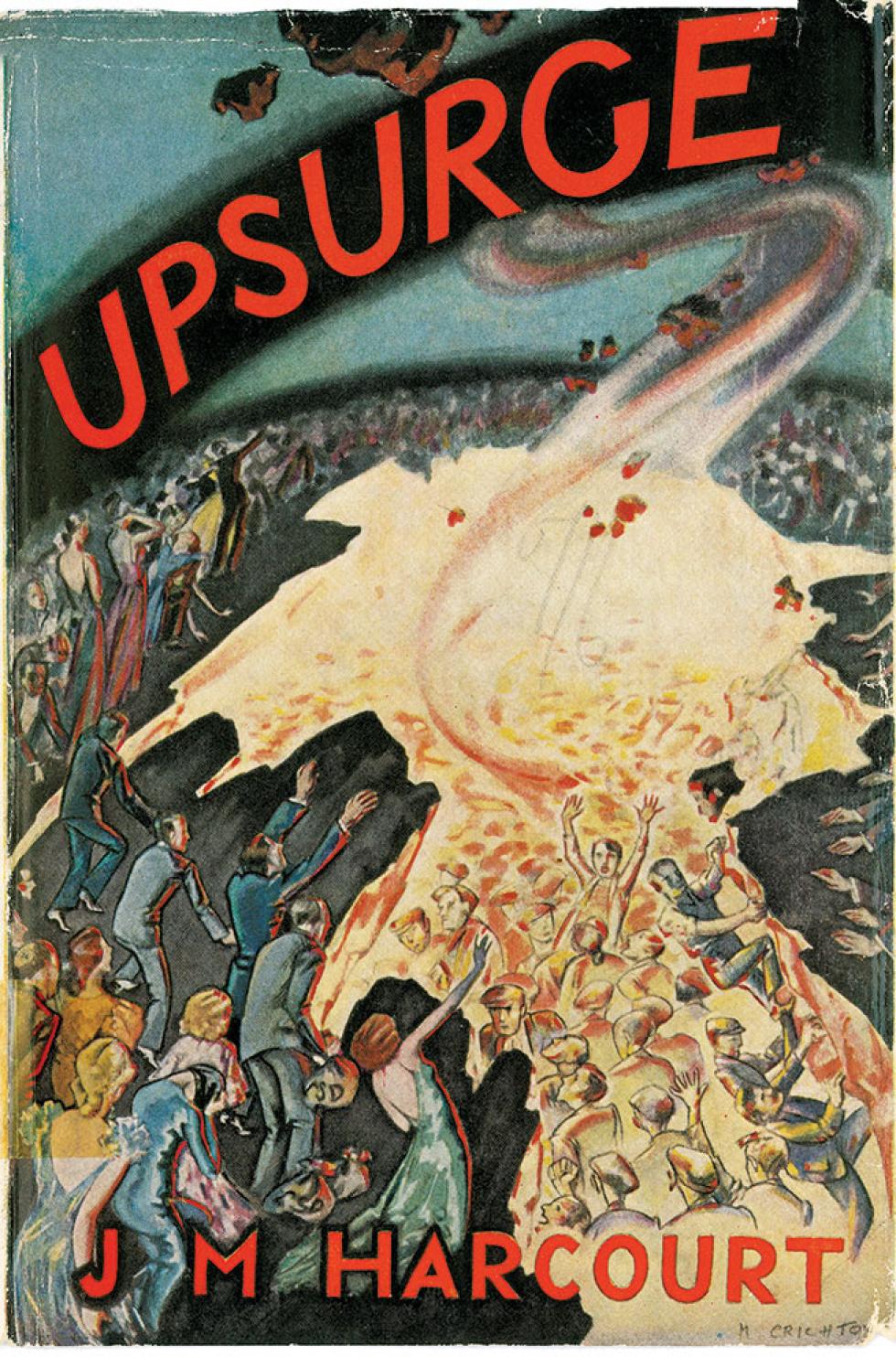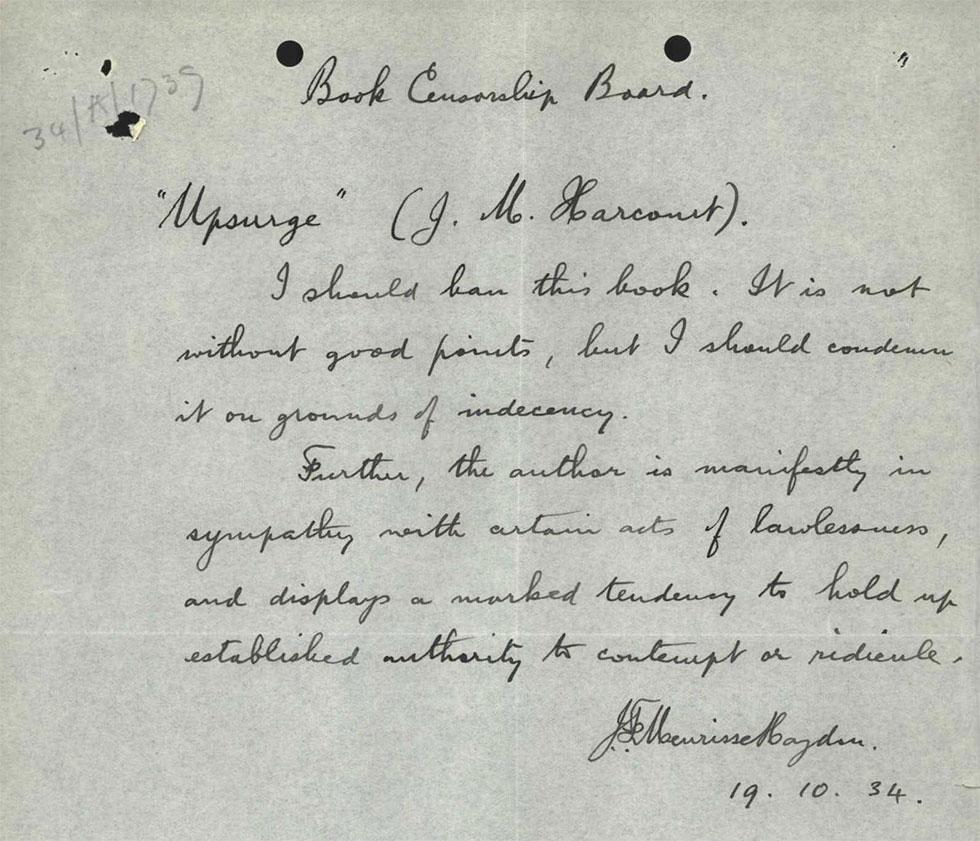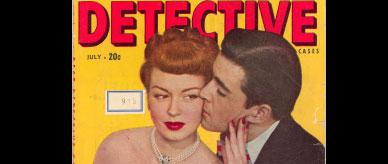Described as one of the most radical Australian books written during the interwar years, JM Harcourt's Upsurge was the first novel to be regarded as both obscene and seditious by the censors. Portraying the lives of Western Australia’s working class during the Depression, it was published in London in early 1934.

Cover of 'Upsurge', 1934 edition published by John Long, Limited. NAA: C3059, Upsurge
Its arrival in Australia provoked controversy. A review in the West Australian in June 1934 remarked:
It would be hard to imagine a more thoroughly unpleasant set of people than are found in the pages of Mr. Harcourt's immature narrative of 'petting parties', shop girls' strikes, street-rioting – in which the police are made to behave like a lot of Bashi-Bazooks – Communist agitators, crude caricatures of magistrates and business magnates – the whole extra-ordinary conglomeration being liberally spiced with frankly erotic situations…
The Clerk-in-Charge of the Western Australian Customs office, CJ Carne, was instructed to purchase a copy of Upsurge for review in July 1934. He reported that the book was ‘decidedly indecent … and advocates the overthrow by violence of established Government'. Describing it as ‘thinly disguised propaganda on behalf of Communism and social revolution’, Carne made it clear he felt the novel was seditious under the provisions of the Customs Act.
However, the newly created Book Censorship Board, which reported on Upsurge in November 1934, banned the novel primarily as indecent. Chairman RR Garran described it as 'a crude book … [that is] disfigured by some very gross passages':
E.g. pp. 31–2 – 'Lord of the Urinal' – just dirty with no apparent reason. And the brothel scene – pp. 189–90 … is quite unnecessarily indecent – on a level with an indecent photograph.
Garran concluded that 'a book cannot be 'cut' like a film. If a writer chooses to introduce obscenities like these, I should ban.' The Customs Minister agreed and added the novel to the list of prohibited imports on 20 November 1934.

Although 'Upsurge' was banned as indecent by the Board, one member also noted the author's 'tendency to hold established authority to contempt or ridicule'. NAA: A3023, Folder 1933/34
Before it was banned by Customs, Upsurge was subject to legal action in New South Wales and Western Australia under state laws. After police confiscated copies from Perth booksellers in August 1934, Harcourt defended his book as a socialist critique of Australian society:
The theme of the novel is the modern economic crisis, with its accompanying decay in the manners and morals of society … I do not think that anyone, other than those who run away from all forms of unpleasantness, would regard it as indecent … English and American reviewers have given it high praise.
Banned for nearly 24 years, Upsurge was released on 29 April 1958 following the first review of banned books since Federation.
This article was originally published in 2013 as part of National Archives's Banned display and blog, delving into the secret history of Australian literary censorship.




